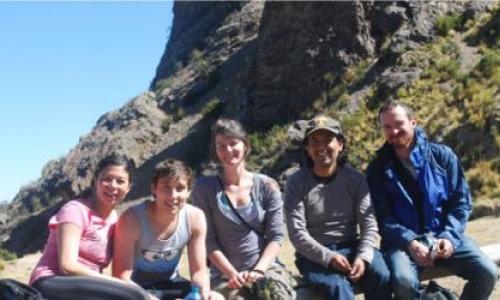
As the SFU Food Bank Coordinator, I got a chance to interview candidates for the Food Bank Assistant volunteer role, and boy was that a weird feeling. I’ve been through quite a few nerve-wracking and wonderful interviews, but I have never conducted an interview before. This was a really wonderful experience because not only did I get to develop new skills but I also learned to look from an interviewer’s perspective- which I think will come in handy for when I get interviewed further down the road. Hopefully, this newfound perspective will help you too!
Looking Through Applications
For Co-op alone, I have written at least 40 cover letters over two search periods, and I know how painstaking it can be to apply for positions. With this in mind, I found myself being quite empathetic to the applicants but also maybe even more of a harsh critic. I know the difference between a poorly written application and a well-done one because I have been the author of both. With this in mind, I could appreciate the well-written ones and look through the applications with a more critical eye. Keep in mind, your future employer will probably have way more experience than I do- and even I can tell the difference between a thoughtful application and a not-so-thoughtful application. So if an amateur like myself could tell how much time you put in your application, take your time and put the effort into when you apply to really impress your future employer.
Selecting the Candidates
It’s definitely a tough process to select candidates based on what they have written in their application because that is all you have to base them on and there is normally a time crunch. A lot of the times, candidates have very similar qualifications and it’s very hard to “rank” them when you only get the “paper” version of them. It’s horrible, but even the slightest thing could weed out a candidate, including a seemingly small error like a spelling mistake. This person could be the perfect candidate, but when there is such a close call anything is fair game.
With some coaching from my supervisor, I found that I really had to hone down and focus on who would make the best candidate. I had to think to myself:
- Who is better qualified for this position?
- Who is passionate about this position?
- Who has skills that cannot be learned?
- What skills can this candidate learn?
There are so many factors and so many ways to select a candidate, but I found that ultimately it came down to:
- Would you want to work with this candidate?
- Can you work with this candidate’s skill set and teach them what they do not know?
Interviewing the Candidates
The first time I interviewed a candidate I was nervous! But I quickly got over it when I saw how nervous I made the candidates. It was the funniest phenomenon- l could make an interviewee nervous? I was just on the other side of the table a few months ago! Don’t get me wrong; it’s good to be a little nervous because it means that you want the position. There is the other extreme where people are too confident to the point where it does not seem like they want the job to begin with. Complicated, I know.
If you are nervous about an interview a good thing to note is that I wanted the candidates to do well, and I was secretly cheering for them every time they got a question peg on, or when they asked me a good question. Your interviewer wants a great candidate and if they ask you for an interview- they see the potential in you!
After conducting a few interviews, I learned that there are some things that you can do to impress an interviewer and there are things that do not impress an interviewer.
Do:
- Show up early
- Give a good handshake
- Research the organization you are applying for
- Be prepared
- Show interest and ask questions
Don’t:
- Show up late
The biggest lesson I learned is that being late looks really bad. No matter how well you interview, it’s a huge red flag because it cancels out some of the “do’s” I listed. For instance, if you were late you were not prepared for the unforeseen circumstance that made you late (traffic, getting lost), or it looks like you’re not interested in the position! Job or volunteer competition can be tough, and a good way to keep up is to show that you care. Put time into your application, be prepared, and make absolutely sure you show up on time. Simple things like this can really set you apart.
Now that I’ve sat on the “other side” of the table, I would like to think I have a slightly better understanding of how employers think and what they are looking for, and I hope you’ll be able to as well!
Beyond the Blog
-
Read about Natalie's first Co-op term.
-
Check out Volunteer Services for more opportunities.

















